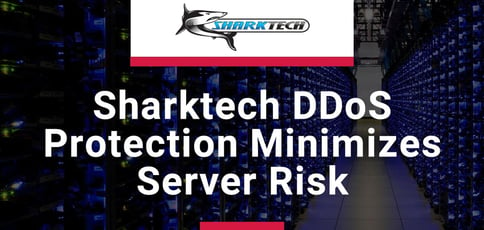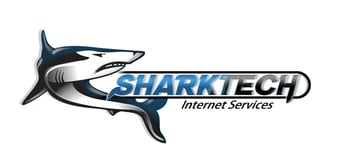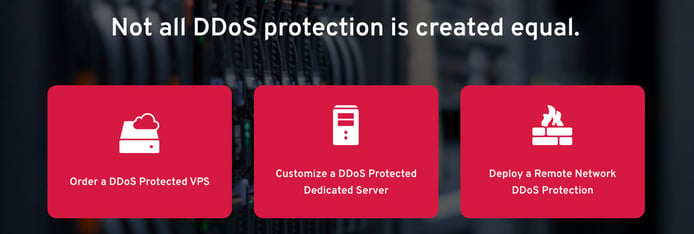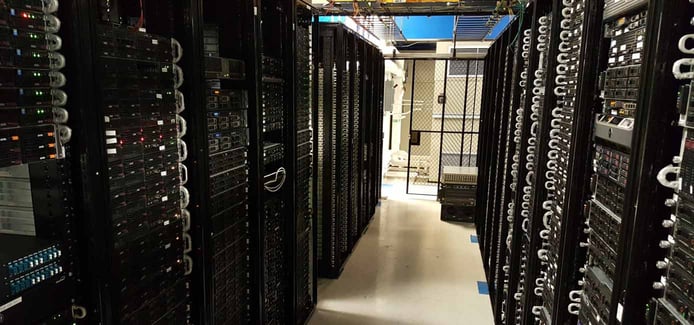
TL; DR: Early network security firms didn’t pay much attention to SMBs. When Sharktech launched in 2003, it set out to provide that underserved market with sophisticated protection against distributed denial of service (DDoS) attacks at an affordable price. The company has since expanded to offer dedicated and virtual servers at four datacenters located in the United States and the Netherlands. Sharktech’s current focus is fine-tuning its cloud computing offerings in response to emerging market trends.
Threats to network security have advanced quickly as more businesses and consumers have ventured online. In the late 1990s, cybersecurity pioneer Tim Timrawi noticed the most prevalent attacks on network infrastructure were in the form of distributed denial of service (DDoS) attacks.
At the time, the industry lacked a cohesive response tool to help mitigate those threats. And SMBs were particularly vulnerable. That’s why Tim founded Sharktech in 2003.
“We founded our startup because, in those days, Internet Relay Chat was in its prime, and there were a lot of DDoS attacks,” said Ragnar Joensen, Vice President of Operations for Sharktech. “That’s what Tim saw back then, and the big guys didn’t really care about the little guys when it came to attacks. So he considered what he could do about it, and that’s how the company came to life.”

Since then, Sharktech has built a robust, proprietary DDoS product that’s a market leader in the low-cost mitigation sector. It has also expanded its reach to include hosting and managed services with datacenters in Los Angeles, Denver, Chicago, and Amsterdam.
“The multiple datacenters also help us in terms of DDoS attacks,” he said. “If we get any attacks, we can announce your prefixes in four locations and scrub the attack closer to its origin.”
In principle, Sharktech can even distribute loads more effectively, depending on where the attack originates.
The company offers a mix of servers, including dedicated and VPS, and standalone remote DDoS protection. All Sharktech-managed servers come with DDoS protection and allow for many different pricing structures based on resource allocation.
Clients can customize products to a variety of use cases, so SMBs can even deploy configurations that aren’t standard elements of the Sharktech product line.
Focused Protection Against Distributed Denial of Service Attacks
A DDoS attack is a deliberate attempt by one or more actors to disrupt a server so it cannot respond to legitimate network traffic. For example, if a hacker collective attacks a company’s ecommerce site, it’ll set up a series of bots to continuously talk to the targeted server.
Eventually, the server cannot handle all the inbound traffic, so it either shuts down or becomes so slow that the genuine customers experience timeouts or other errors. Today, DDoS attacks are evolving in sophistication compared to the brute-force attacks that Sharktech initially encountered.
“The attacks you used to see were volumetric, for high bits per second or packets per second,” Ragnar said. “Those attacks exhausted pipes or router performance. But now, it’s mostly layer 7, where it goes in and exhausts the customer’s game server, web server, or MySQL server.”
Enterprises are often well-equipped to deal with DDoS attacks, but most SMBs can’t afford the same type of protection. Some services offer solid protection in exchange for some setup complexity, periodic maintenance, and ongoing fees.

Sharktech functions differently; the company doesn’t treat DDoS protection as a middleware bolt-on but rather as a core part of its own networking infrastructure. It functions seamlessly from the customer’s perspective. That makes it an ideal choice for small-business owners who may not want to configure DNS or administer servers to take advantage of third-party protection.
“I would say we’re mostly serving small businesses,” Ragnar said. “Our goal is to help small businesses know the entrepreneurial spirit.”
Sharktech’s dedicated and virtual servers protect those small businesses by removing the management layer for DDoS protection. Every server enjoys robust coverage using the company’s proprietary defense infrastructure. Entrepreneurs who host with SharkTech have peace of mind that additional managed protection comes standard.
That consideration is vital for SMBs in industries that attract unwanted attention from hackers.
Cloud and Dedicated Servers Present Different Use Cases
Cloud computing often makes sense because it’s much harder for a DDoS attack to take down an entire cloud service. For example, Facebook runs on thousands of IP addresses, so it’s virtually impossible to take down the social networking site with a conventional attack. Likewise, a cloud service — one that uses several computers on different routers with unique IP addresses — proves a much harder target for DDoS takedowns.
Dedicated servers, by contrast, are easier to pinpoint because they’re often the only link in the chain. For SMBs, a true cloud solution may be overkill, whereas a dedicated server or a VPS might make for the easiest and most cost-effective solution. But there’s a risk-sensitive tradeoff between cost, security, and ease of management for any server.
Sharktech offers dedicated and virtual private servers that enjoy DDoS protection, meaning that some of the risk is off the table.

A true cloud solution is scalable, more robust — and more costly. Entrepreneurs have different cost-risk assessments that make the most sense for them, although the industry itself may soon shift that calculation.
“Everything’s trending toward cloud services,” Ragnar said. “You buy your resources and deploy whatever you need, wherever you want. ”
Cloud-based computing will likely triumph over the shared, dedicated, and stand-alone VPS offerings currently serving the SMB ecosystem. That change won’t eliminate the need for good cybersecurity — it’ll merely shift the work between the customer and the provider.
Sharktech: Offering Peace of Mind to SMBs
DDoS attacks can threaten the lifeblood of small businesses by disrupting open access to their websites. Although large companies often address DDoS protections in-house, SMBs must either buy protection or partner with a provider. Sharktech is taking the lead in the hosting industry by delivering DDoS protection on its servers by default.
Traditional servers — including shared, virtual, and dedicated servers — are likely to cede more ground to scalable cloud computing as the dynamics between cost, complexity, and risk continues to shift. The use cases are different, but so are the security models that entrepreneurs must consider when evaluating their infrastructure needs.
Facilitating the migration to the cloud is Sharktech’s top priority.
“We’re partnering with a cloud provider that is going to provide us with cloud software so we can go all-in on providing cloud services,” Ragnar said.
Regardless of where an SMB stands on cloud migration, Sharktech offers tools to help them now. Its stand-alone DDoS protection, and virtual and dedicated servers with DDoS protection built-in, offer peace of mind for business leaders concerned about hackers and cybercriminals.
“We want to make something that’s affordable, especially for small businesses,” Ragnar said. “That’s how we operate, on a day-to-day basis, to ensure we get the best prices and the best possible transits from our internet service providers.”
HostingAdvice.com is a free online resource that offers valuable content and comparison services to users. To keep this resource 100% free, we receive compensation from many of the offers listed on the site. Along with key review factors, this compensation may impact how and where products appear across the site (including, for example, the order in which they appear). HostingAdvice.com does not include the entire universe of available offers. Editorial opinions expressed on the site are strictly our own and are not provided, endorsed, or approved by advertisers.
Our site is committed to publishing independent, accurate content guided by strict editorial guidelines. Before articles and reviews are published on our site, they undergo a thorough review process performed by a team of independent editors and subject-matter experts to ensure the content’s accuracy, timeliness, and impartiality. Our editorial team is separate and independent of our site’s advertisers, and the opinions they express on our site are their own. To read more about our team members and their editorial backgrounds, please visit our site’s About page.



